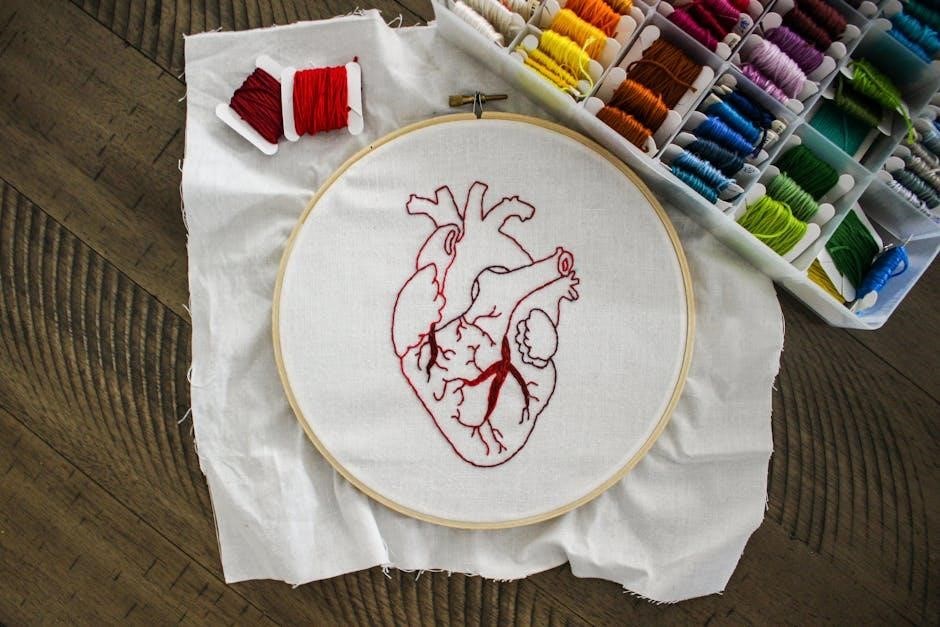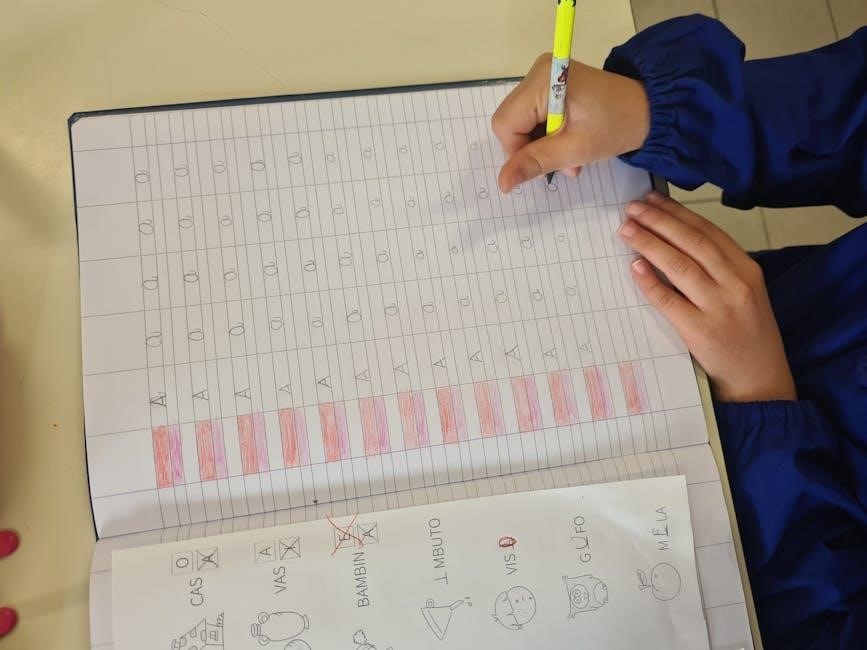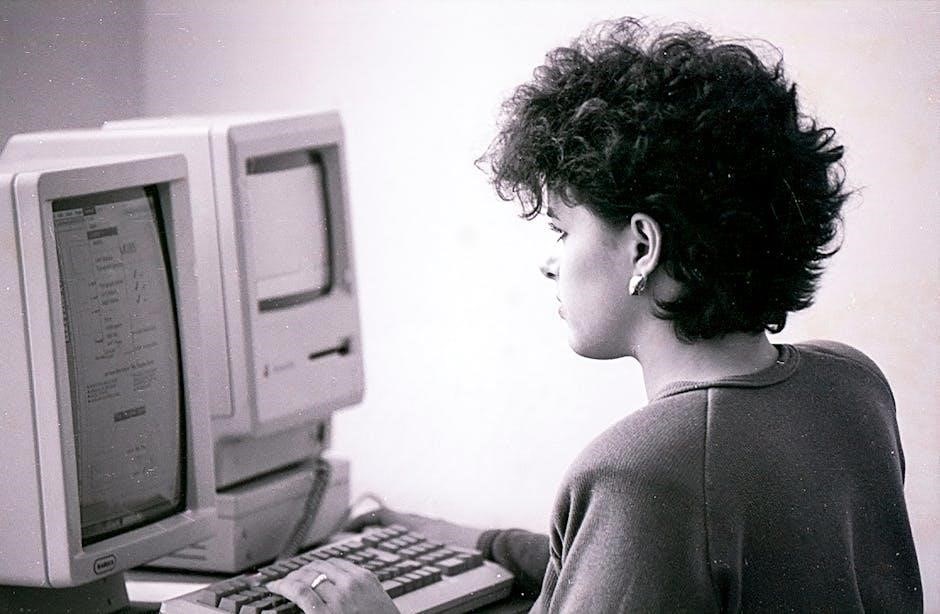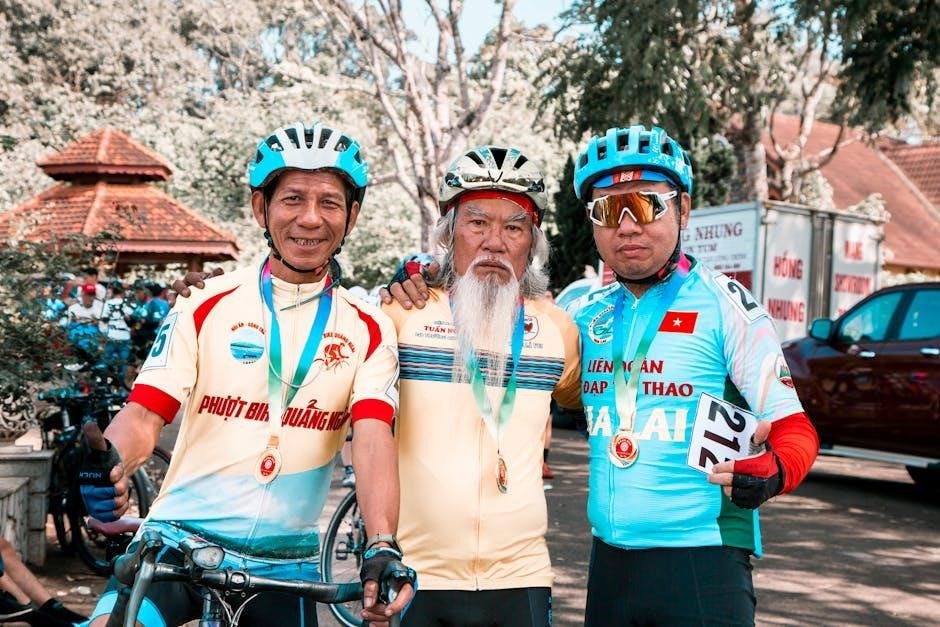The Worry Worm crochet pattern is a popular DIY project designed to help children manage emotions and stress. These small‚ colorful creatures‚ often made from simple stitches‚ have gained traction for their therapeutic benefits and ease of creation. Originating from mental health initiatives‚ they encourage mindfulness and creativity‚ making them a beloved craft for both beginners and experienced crocheters alike.
What is a Worry Worm?
A Worry Worm is a small‚ crocheted companion designed to help children and adults manage stress and emotions. Originating from mental health initiatives‚ these colorful creatures are created using simple stitches and yarn. They serve as a tactile tool for anxiety relief‚ encouraging mindfulness and calmness. The Worry Worm has gained popularity worldwide‚ often shared in communities as symbols of kindness and support. Its versatility allows for customization‚ making it a beloved project for crocheters of all skill levels while fostering emotional well-being.
Why is the Worry Worm Popular?
The Worry Worm has gained popularity due to its therapeutic benefits‚ helping children and adults manage stress and emotions. Its simplicity and customizable design make it accessible to all skill levels. The free PDF pattern and video tutorials available online have made it easy for people to start crocheting. Additionally‚ the sense of community and the joy of gifting these worms contribute to their widespread appeal‚ making them a beloved project for many crocheters.
Benefits of Crocheting a Worry Worm
Crocheting a Worry Worm offers numerous benefits‚ particularly for mental health. These small‚ cuddly creatures are designed to help children manage stress and anxiety by providing a tactile comfort object. For adults‚ the repetitive stitching process can be meditative‚ reducing stress and promoting mindfulness. Creating Worry Worms also fosters creativity and a sense of accomplishment. Additionally‚ they make thoughtful gifts‚ spreading joy and kindness. Many crochet communities support charitable initiatives‚ making this project a way to give back and connect with others while nurturing mental well-being through craft.

Materials Needed for the Worry Worm Crochet Pattern
To create a Worry Worm‚ you’ll need medium-weight yarn‚ a size J (6.0mm) crochet hook‚ polyester fiberfill stuffing‚ and embroidery floss for details like eyes.
Yarn Recommendations
For a Worry Worm‚ medium-weight yarn is ideal due to its softness and durability. Acrylic yarns are highly recommended as they are easy to care for and come in a wide range of colors. Bright‚ vibrant hues work best for creating cheerful worms that appeal to children. Consider using yarn with good stitch definition to ensure the texture of the crochet stitches is visible. Avoid overly bulky yarns‚ as they can make the worm too stiff. Opt for yarns that are gentle on the skin‚ perfect for a comforting companion.
Crochet Hook Sizes
The Worry Worm crochet pattern typically requires a medium-sized hook‚ such as a 4mm or 5mm‚ to achieve the desired texture and size. Using the correct hook size ensures your stitches are even and the worm’s shape is consistent. A smaller hook may result in a denser fabric‚ while a larger hook will create a looser‚ more open texture. Always check the pattern for specific recommendations‚ as hook size can vary depending on the yarn used. Proper hook size is essential for a professional-looking finish.
Other Supplies Required
Besides yarn and hooks‚ you’ll need stuffing material for the worm’s body‚ small plastic or bead eyes for the face‚ and a sewing needle for weaving ends. Scissors are essential for cutting yarn‚ and a tapestry needle helps with stitching parts together. Stitch markers can aid in tracking rounds‚ while a ruler ensures accurate measurements. Optional embellishments like buttons or fabric paint add personality. These tools help bring your Worry Worm to life‚ making it a charming and functional crochet project.
Basic Crochet Stitches for Beginners
Mastering basic stitches like the chain stitch (ch)‚ single crochet (sc)‚ half double crochet (hdc)‚ and double crochet (dc) is essential for creating a Worry Worm. These foundational stitches are simple to learn and form the basis of most crochet patterns‚ including the Worry Worm design.
Chain Stitch (ch)
The Chain Stitch (ch) is the foundation of most crochet patterns‚ including the Worry Worm. It involves creating a series of connected loops with your crochet hook. To make a Chain Stitch‚ insert the hook‚ yarn over‚ and pull up a loop. Repeat this process to form a chain of the desired length. This stitch is essential for starting projects like the Worry Worm‚ as it creates the base for other stitches. Keep your tension even to ensure a straight and consistent chain. Practice this stitch to build a solid foundation for your Worry Worm crochet project.
Single Crochet (sc)
The Single Crochet (sc) is a foundational stitch in crocheting a Worry Worm. It involves inserting the crochet hook into a stitch‚ yarning over‚ and pulling up a loop. This stitch is ideal for beginners‚ as it creates a soft‚ fabric-like texture. For the Worry Worm‚ the sc stitch is often used for the body and head sections. Ensure even tension to maintain the worm’s shape. Practice this stitch to master the basics of Worry Worm crochet patterns‚ especially when following free downloadable PDF guides.
Half Double Crochet (hdc)
The Half Double Crochet (hdc) is a versatile stitch commonly used in the Worry Worm pattern. To create an hdc‚ yarn over‚ insert your hook into the stitch‚ yarn over again‚ and pull up a loop. You’ll then have three loops on your hook. Yarn over one more time and pull through all loops to complete the stitch. This stitch is slightly taller than a single crochet but shorter than a double crochet‚ making it ideal for creating the Worry Worm’s soft‚ textured body. It’s a great stitch for beginners and adds a subtle texture to your project.
Double Crochet (dc)
The double crochet (dc) stitch is a fundamental crochet technique often used in Worry Worm patterns. It creates a slightly taller stitch than single crochet‚ adding texture and dimension to the worm’s body. To work a dc‚ insert the hook into the stitch‚ yarn over‚ pull up a loop‚ yarn over again‚ and complete the stitch by pulling through both loops. This stitch is versatile and commonly used in amigurumi projects like the Worry Worm‚ making it essential for achieving the desired shape and structure. Practice this stitch to ensure even tension for a professional finish.
Step-by-Step Guide to Crocheting a Worry Worm
Start by crocheting the body using simple stitches‚ then create the head and antennae. Add legs and shape the worm‚ following the pattern’s sequence for a smooth finish.
Crocheting the Body
To crochet the body of the Worry Worm‚ start by creating a foundation chain of the desired length. Use single crochet (sc) stitches to form the main structure. Gradually increase stitches to shape the body into a gentle curve. Work in rounds or rows‚ depending on the pattern‚ ensuring even tension for a smooth texture. Use stitch markers to track your progress and maintain symmetry. The body should be sturdy enough to hold its shape while remaining soft and cuddly. This step lays the foundation for the worm’s iconic design.
Crocheting the Head
To crochet the head‚ start by creating a small circle using a magic ring or a chain stitch. Work evenly around the circle with single crochet stitches‚ ensuring a smooth shape. Gradually decrease stitches to form a rounded tip‚ creating the worm’s face. Use a stitch marker to track the beginning of each round. Once the head is complete‚ set it aside to attach later. This step is crucial for the worm’s recognizable appearance and emotional appeal‚ making it a key part of the project.
Adding Legs and Antennae
To complete your Worry Worm‚ attach six small legs evenly spaced around the body using short pieces of yarn. For antennae‚ use embroidery floss or thin yarn‚ securing them at the top of the head. Ensure stitches are tight to prevent loose ends. These details bring the worm to life‚ making it more engaging for users. Keep antennae short for safety‚ especially if the worm is for children. This step adds personality and finishes the design‚ ready for gifting or personal use.

Customizing Your Worry Worm
Customize your Worry Worm by choosing vibrant colors‚ adding embellishments like buttons or sequins‚ and adjusting sizes to create unique‚ personalized designs for gifts or displays.
Choosing Colors
Color selection plays a key role in making your Worry Worm unique and meaningful. Bright‚ cheerful hues like red‚ yellow‚ and blue can evoke positivity‚ while pastel tones offer a softer‚ calming effect. Neutral shades like beige or gray create a subtle‚ versatile look. Consider the recipient’s favorite colors or match the worm’s personality to its intended use. Some creators also use variegated yarn for a multi-toned effect. The color choice not only enhances the worm’s appearance but also adds emotional resonance to this comforting crochet project.
Adding Embellishments
Embellishments can bring personality to your Worry Worm. Use buttons or fabric paint for eyes‚ and add ribbons or embroidery floss for antennae. Yarn pom-poms or small fabric scraps create whimsical details. For texture‚ stitch on felt shapes or beads. Personalize with glitter yarn or appliques for a unique touch. These small additions make your Worry Worm standout and special‚ offering endless creativity for crafters of all skill levels.
Adjusting Sizes
Adjusting the size of your Worry Worm is easy by modifying the hook size or yarn weight. A larger hook creates a bigger worm‚ while a smaller hook results in a smaller one. You can also adjust the number of stitches or rounds to achieve your desired size. This flexibility allows you to customize the Worry Worm for different purposes‚ such as keychains or decorations. The pattern’s versatility makes it suitable for various applications‚ ensuring your creation fits your vision perfectly.

Downloading the Free PDF Pattern
Find the free Worry Worm crochet pattern on trusted sources like Ravelry or Etsy. Download safely and enjoy the ad-free PDF format for your project.
Where to Find Trusted Sources
Trusted sources for the Worry Worm crochet pattern PDF include platforms like Ravelry‚ Etsy‚ and dedicated crochet blogs. Communities on Reddit‚ such as r/crochetpatterns and r/GeekyCrochet‚ often share free or paid patterns. YouTube channels like “Start Crochet” offer video tutorials and downloadable guides. Ensure you download from reputable websites to avoid malware or low-quality patterns. Many designers also host free versions on their personal blogs or through platforms like Patreon. Always verify the source’s credibility for a safe and seamless experience.
How to Download the Pattern Safely
To download the Worry Worm crochet pattern safely‚ ensure you use trusted sources like Ravelry‚ Etsy‚ or the creator’s official website. Avoid unofficial links or suspicious sites to prevent malware risks. Always verify the file format (PDF) and check for antivirus before opening. Reputable platforms often provide secure downloads‚ but it’s wise to double-check the source. Supporting creators by downloading from their official channels ensures you get a high-quality‚ virus-free pattern while contributing to their work.

Video Tutorials for Visual Learners
YouTube offers step-by-step guides for crocheting Worry Worms‚ perfect for visual learners. Channels like GeekyCrochet provide easy-to-follow tutorials‚ making the process simple and enjoyable for all skill levels.
YouTube Channels Offering Tutorials
YouTube offers a variety of channels that provide excellent tutorials for crocheting a Worry Worm. Channels like Crochet Geek and Start Crochet feature step-by-step guides for beginners. These tutorials often include close-up shots and clear instructions‚ making it easy to follow along. Many creators also share tips and tricks to customize your Worry Worm. Whether you’re a novice or an experienced crocheter‚ these videos are a great resource to ensure your project turns out perfectly. They also cover troubleshooting common mistakes‚ helping you achieve professional results.
How to Follow Along with Video Instructions
Video tutorials are an excellent way to master the Worry Worm crochet pattern. Channels like GeekyCrochet on YouTube offer step-by-step guides‚ making it easy to follow along. Pause and rewind as needed to ensure each stitch is executed correctly. Many creators provide clear close-ups and verbal explanations‚ catering to visual learners. Use the free PDF pattern as a reference while watching to ensure accuracy. Joining crochet communities can also provide support and tips for understanding complex steps. Practice patience‚ and enjoy the creative process!

Tips for Sharing Your Finished Worry Worm
Share your finished Worry Worm by gifting it to a friend or displaying it proudly. Consider posting photos online or including the free PDF pattern for others to enjoy. Spreading kindness has never been easier!
Displaying Your Creation
Displaying your finished Worry Worm can be a delightful way to showcase your creativity. Many crafters place their Worry Worms in cozy spots like shelves or shabby-chic corners. Others use them as decorative accents in home decor. Some even share their creations in public spaces‚ spreading joy and positivity. Consider adding a personalized note or a small stand to make your Worry Worm a focal point. Displaying your work not only celebrates your crafting skills but also inspires others to embrace the therapeutic benefits of crochet.
Gifting Your Worry Worm
Gifting a Worry Worm is a thoughtful way to spread joy and support emotional well-being. These small‚ colorful creatures make perfect presents for children or friends‚ offering comfort and mindfulness. Personalize your gift by choosing meaningful colors or adding a heartfelt note. Many creators share their Worry Worms in public spaces as random acts of kindness‚ inspiring others to embrace crochet as a therapeutic hobby. This gesture not only shares your craft but also fosters positivity and connection in your community.

Common Mistakes to Avoid
Inconsistent tension can cause the Worry Worm’s body to become misshapen‚ so keep stitches evenly tight. Regularly check your work to avoid loose or tight spots.
Incorrect stitch counts often lead to shape irregularities. Count stitches carefully and use stitch markers to stay on track for a perfectly rounded Worry Worm body.
Troubleshooting Stitch Errors
Common stitch errors when crocheting a Worry Worm include miscounted stitches‚ uneven tension‚ or incorrect hook sizes. To fix these‚ recount your stitches or rip back to the last correct row. Ensure consistent tension by checking your gauge and adjusting your hook size if needed. For irregular shapes‚ verify that increases and decreases are evenly spaced. If stitches are too tight or loose‚ try a different hook size while maintaining the pattern’s rhythm. Regularly reviewing your work helps catch errors early‚ ensuring a smooth‚ professional finish.
Fixing Shape Irregularities
When crocheting a Worry Worm‚ shape irregularities can occur due to uneven tension or miscounted stitches. To fix this‚ gently stretch or reshape the piece while it’s still on the hook. For severe misshapen areas‚ frogging (ripping out stitches) and redoing that section may be necessary; Ensure consistent tension and accurate stitch counts to maintain the desired shape. Blocking the finished piece can also help achieve a more uniform appearance. Regularly checking your work as you go will prevent major adjustments later.

Community and Support
Crochet communities on platforms like Reddit and Facebook offer shared patterns‚ advice‚ and encouragement. Joining these groups allows crafters to ask questions‚ share creations‚ and connect with fellow enthusiasts. Experienced crocheters often provide tips and inspiration‚ fostering a supportive environment for beginners. The Worry Worm’s therapeutic purpose motivates many to contribute and collaborate‚ ensuring a vibrant and helpful community for all skill levels.
Joining Crochet Communities
Joining crochet communities is a great way to connect with fellow crafters and gain inspiration for your Worry Worm project. Platforms like Reddit‚ such as r/crochetpatterns and r/GeekyCrochet‚ offer spaces to share ideas and seek advice. Facebook groups and specialized crochet forums also provide valuable resources and support. Engaging with these communities can help you discover new techniques‚ troubleshoot issues‚ and even find free patterns like the Worry Worm crochet pattern PDF. Sharing your creations and learning from others can enhance your crafting experience and foster creativity.
Asking for Help Online
Online communities are a great resource for guidance with the Worry Worm crochet pattern. Platforms like Reddit’s r/crochetpatterns and r/GeekyCrochet offer spaces to ask questions and share tips. YouTube tutorials‚ such as the “How to Make a Worry Worm for Beginners” video‚ provide visual instructions. Additionally‚ mental health-focused forums and crochet groups on Facebook or Instagram can connect you with experienced makers who offer advice. Don’t hesitate to reach out—these communities are supportive and eager to help you bring your Worry Worm to life!
Crocheting a Worry Worm is a rewarding project that combines creativity with emotional support‚ helping individuals manage stress while fostering a sense of accomplishment and kindness.
Final Thoughts on Crocheting a Worry Worm
Crocheting a Worry Worm is a rewarding and meaningful project that combines creativity with emotional support. These small‚ colorful creatures not only bring joy to creators but also serve as tools for managing stress and anxiety. With a free downloadable PDF pattern‚ anyone can embark on this craft‚ whether for personal use or to gift others. The therapeutic benefits and sense of accomplishment make every stitch worthwhile. Embrace the process‚ enjoy the journey‚ and share the positivity that comes with making a Worry Worm.
Encouragement to Start Your Project
Starting your Worry Worm crochet project is an exciting journey! With its simple design and therapeutic benefits‚ it’s perfect for crafters of all skill levels. Each stitch contributes to creating a meaningful companion that can bring comfort and joy. The Worry Worm’s popularity lies in its ability to help manage emotions‚ making it a rewarding project to undertake. Don’t hesitate—grab your yarn and hook‚ and begin crafting a Worry Worm that will spread kindness and warmth to those who receive it. Your creativity can make a difference!



























































